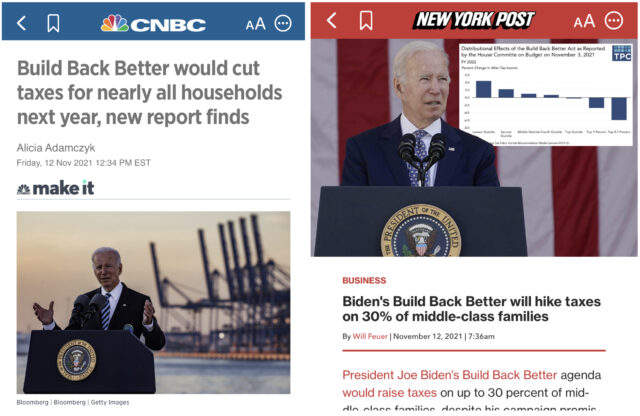Or am I missing something super obvious here? Take a look for yourself: CNBC; New York Post. The funny thing: Both news stories cite the same study but choose to frame the findings differently. Specifically, in presenting their opposing viewpoints, CNBC and New York Post link to different Tax Policy Center datasets—here and here, respectively.
The two headlines, and the reports themselves, are an excellent case study for how data is subjectively presented by the so-called mainstream media—or any other organization with some measure of partisan political leanings. The network is notoriously liberal and pro-Biden. The newspaper is arguably conservative and more critical of old Joe.





